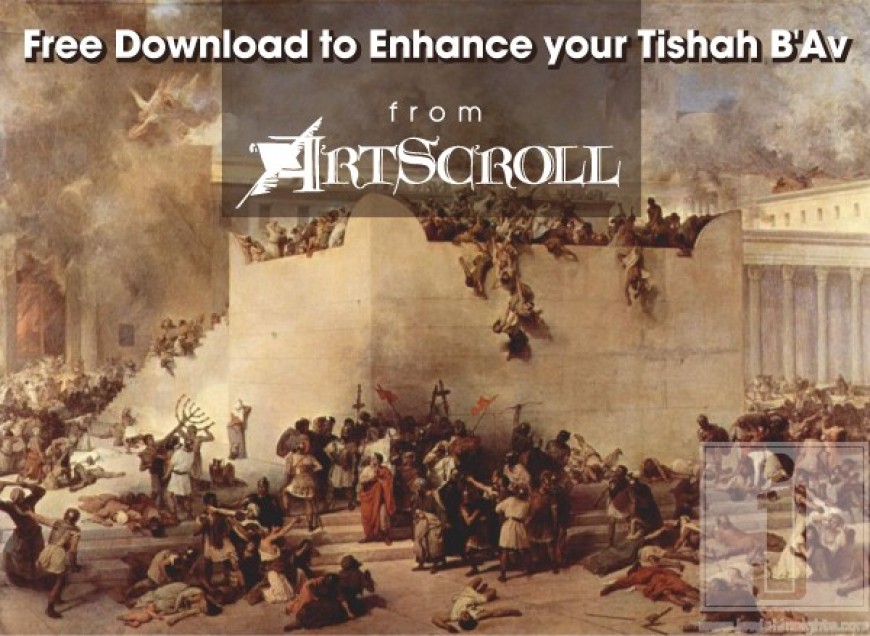A Tishah B’Av Message
The Antidote to the Destruction
In the very well known teaching of the Sages, the Second Temple was destroyed because our nation suffered from baseless hatred. Indeed, the period was characterized by factionalism and strife, The rabbinic leadership urged their people to maintain a good relationship with the powerful Roman occupiers, and the militant factions that not only wanted to fight the Romans, but also warred among themselves. The result was the Roman brutality that crushed the nation and destroyed the Temple.
Many classic commentators have asserted that since the destruction resulted from sin’as chinam – baseless hatred — hatred without cause, then the ultimate redemption will be brought about by love without cause. As one of the great Chassidic masters taught, “G-d loves the greatest sinner more than we love the greatest tzaddik.” What we must do is to tolerate, help and love one another, helping the needy, fostering unity, and drawing the distant closer to Torah and service of G-d.
Rabbi Yonasan Eibeschutz, one of the greatest minds of recent centuries, gave a novel interpretation of the “baseless hatred” of those tortured times. He wrote in his classic Ya’aros Devash that it is inconceivable that Jews did not feed the needy and nurse the sick. Jewish benevolence and philanthropy is not a new phenomenon. Such kindness is our legacy from the Patriarchs and Matriarchs, and has been in Jewish genes from the days of Abraham and Sarah. The generation of the destruction may have suffered from political and ideological conflict, but surely not from apathy and cruelty to those in need. How then did the hatred express itself?
The Ya’aros Devash maintains that jews were indifferent to the spiritual poverty of “outsiders.” Instead of reaching out to the spiritually famished, most Jews tended to “mind their own business” and feel no responsibility to bring Torah and mitzvos to their brethren. That is not what we normally call hatred, but in the truest sense it was extreme hatred, because no nation – especially our nation – can long thrive if it is morally and “culturally” empty. To the Jewish people, “culture” means Torah, and when people ignore the communal responsibility to disseminate its study, they are starving their brethren of spiritual nourishment. It is like feeding an entire nation on a tasty diet on saturated fats, sodium, and sugar.
On Tishah B’Av, as we mourn the loss of the Beis Hamikdash and long for the coming of Mashiach, let us also resolve to bring the Torah and the beauty of Jewiish tradition to our brethren wherever they are. Thanks to the generosity of friends and supporters like you, the Mesorah Heritage Foundation is your agent in doing so. When we see people on planes and trains studying the Talmud, when we see synagogues filled with people developing a new understanding of prayer, when we see a burgeoning interest in Torah study and observance, even when we see children reading stories that have a positive Torah message, we are seeing the antidote to the spiritual animosity that has been a bane of life for too long. There is much, much more to do, but thanks to you, the scholars and editors of the Foundation are making powerful inroads. Many people speak of a Torah revolution. The revolution is yours.
May we all merit the day when Tishah B’Av will be a day of joy, the day when we celebrate the end of the galus – and may it be speedily, in our time.
Rabbi Nosson Scherman Rabbi Meir Zlotowitz



